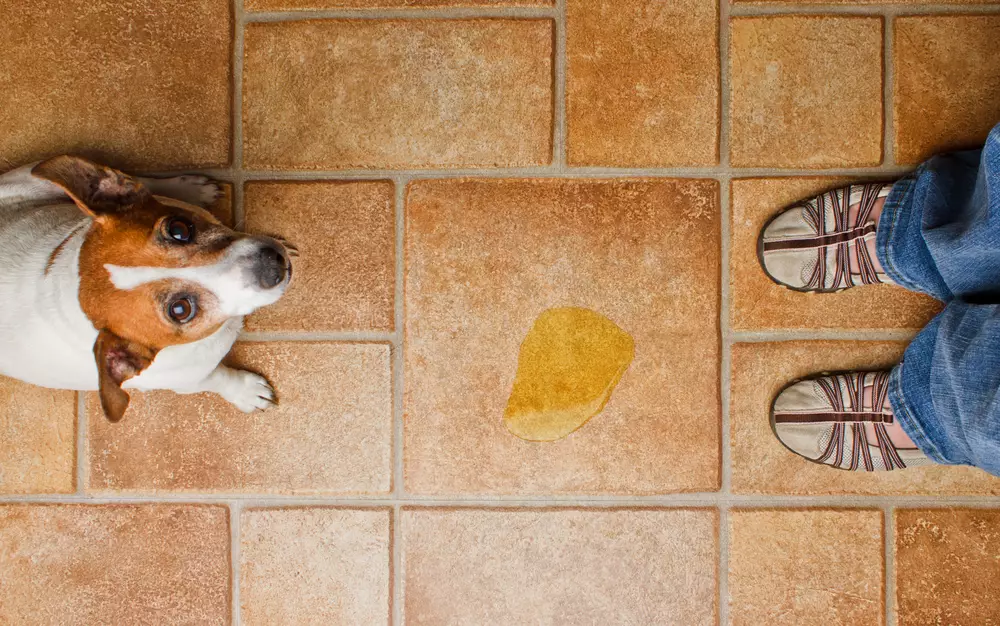Having a puppy can be one of the most exhilarating experiences a family can embark on. Their joyful antics, playful energy, and affectionate nature bring immense joy. However, as many pet owners can attest, this exuberance can sometimes result in a frustrating issue known as excitement-induced urination. This article delves into the nuances of this common problem and presents a holistic approach to managing and mitigating it.
Excitement-induced urination is not an uncommon phenomenon among puppies. It primarily occurs when a dog becomes overly excited due to stimuli such as greetings, playtime, or new experiences. While it might be amusing at first, dealing with frequent urination can quickly become an issue for many pet owners. This behavior often stems from a lack of bladder control, particularly in younger dogs or those that have not yet matured. It’s crucial to understand that this is not a behavioral problem or a sign of defiance; rather, it’s a response primarily driven by excitement and anxiety.
Before creating a strategy to help your pup, consulting a veterinarian is paramount. A veterinary professional can assist in ruling out any medical conditions that may contribute to urgency or frequent accidents, such as urinary tract infections or bladder stones. Addressing any underlying health concerns is essential, as these conditions may require specific medical intervention or treatment. Furthermore, a vet can provide guidance on dietary adjustments or possible supplements that promote bladder health.
For dogs with confirmed good health, incorporating dietary supplements could be beneficial in managing excitement-induced urination. Supplements such as cranberry extract are well-known for their potential in supporting urinary tract health. Cranberry helps adjust urine acidity levels, potentially reducing the frequency of urinary accidents. Other supplements—like D-Mannose for sugar metabolism, Vitamin B6 for nerve function, omega-3 fatty acids for overall health, and L-tryptophan which can aid in relaxation—can also invite improvements in your dog’s urinary control.
Creating a structured routine can be incredibly beneficial for managing your pup’s bladder control. This could involve setting a consistent potty schedule before situations that may trigger excitement. For instance, if you anticipate a playdate or visitors, taking your dog outside beforehand can empty their bladder, reducing the chance of an accident indoors. Relying on timing rather than simply responding to accidents can help create a strong sense of routine that your dog can learn to associate with appropriate bathroom behaviors.
Positive reinforcement is a remarkable tool in training pets. Praising your puppy and offering treats when they remain calm and dry during potentially exciting situations establishes a clear link between their behavior and rewards. Gradually, your puppy will learn the significance of staying composed. It’s vital, however, to remain patient, understanding that changes in behavior may take time to manifest and require consistent effort.
Implementing a regimen of physical exercise before exciting situations can help minimize anxiety and curtail over-excitement leading to urination. By engaging your puppy in activities like walks, fetch, or agility exercises, you can help them expend energy, fostering a more balanced demeanor during later interactions that would usually provoke excitement.
Desensitization is an effective training strategy to help your puppy manage excitement triggers. Start with lower intensity introductions to each situation, allowing your dog to acclimatize while maintaining their composure. As their comfort grows, gradually heighten the intensity of the stimulus, reinforcing positive behavior throughout the process.
If your puppy’s excitement causes significant inconvenience at home, using dog diapers can be a temporary solution. While this may not be a permanent fix, dog diapers can prevent damage to your home during training. They can provide a safety net while you’re emphasizing positive training methods to help your pup learn to manage their excitement effectively.
Finally, crate training can play a crucial role in managing excitement-induced urination. A crate should never be a designated punishment area but rather a safe retreat where your pup can feel secure. When you sense your dog is on the verge of excited urination, placing them gently in their crate can foster calmness. Introducing such a method helps your dog separate excitement from the need to relieve themselves inappropriately.
While dealing with a puppy prone to excitement-induced urination can be challenging, it is a manageable issue with proper strategies and consistent training approaches. Through collaboration with your veterinarian, establishing a solid routine, employing positive reinforcement, and utilizing enrichment activities, you can guide your puppy towards maintaining better bladder control. Embrace the training journey with patience, understanding, and love—each step brings you closer to resolving this playful yet pesky challenge.

